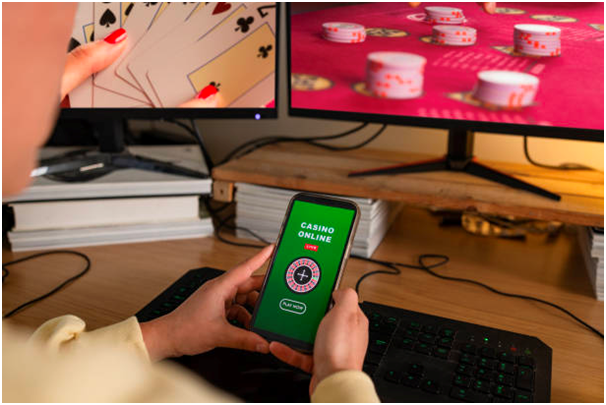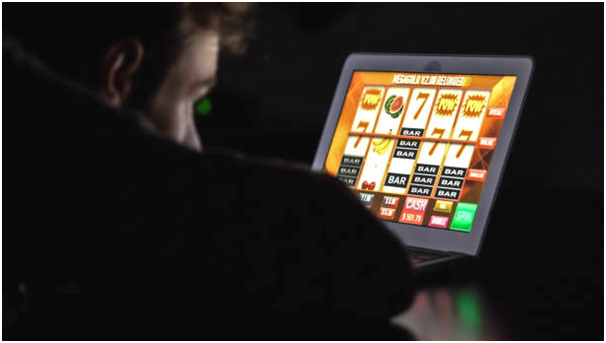How To Stop a Gambling Addiction? Tips To Get Rid of Gambling
We’ve all heard the saying, “Too much of a good thing can be bad.” For many, gambling starts as a harmless bit of fun but can quickly escalate into a destructive habit. If you’re reading this, it’s probably because you or someone you know wants to quit this addiction. First, take a deep breath and give yourself credit for recognising the issue. The path to recovery begins with awareness.
Understanding the Addiction
Before we dive into the solutions, it’s worth understanding why gambling can be so addictive. Just like indulging in a piece of chocolate cake, the short-term rush and excitement can overshadow the long-term consequences. But it’s possible to break free with the right strategies and support.
Self-exclusion Services: A Safety Net
Gamstop
A prominent tool in the UK, Gamstop lets users exclude themselves from online gambling sites. It’s a free service and offers periods of 6 months to 5 years of self-exclusion.
Gamban
While Gamstop restricts access to gambling websites, Gamban goes a step further. It offers software that blocks access to all gambling sites and apps on your devices.
Gamcare
More than just a blocking tool, Gamcare provides counselling, advice, and practical help for those struggling with gambling addiction.
However, it’s essential to remember that there are many non Gamstop sites. While these tools act as a shield, they’re not 100% foolproof. Hence, using multiple strategies in tandem will prove most effective.
Additional Tips to Quit Gambling
1. Recognise the Triggers
Every individual has specific triggers that push them towards the urge to gamble. This could range from certain emotions, environments, or even specific times of the day. Reflect on when you’re most tempted to gamble. Is it during moments of stress or when you feel lonely? Maybe it’s when you’re out with certain friends. Recognising and acknowledging these triggers is the first step. Once identified, you can actively work on strategies to avoid or combat them, creating a more resilient defence against gambling.
2. Seek Support
Battling addiction in solitude can be overwhelming. It’s crucial to remember that you’re not alone in this journey. Open up to friends or family members about your struggles; their perspective and encouragement can be invaluable. Additionally, there are numerous support groups and communities where you can share experiences, challenges, and victories. Sharing not only reduces the burden but can also provide insights into coping strategies others have found effective.
3. Distract Yourself
Idle hands and minds can easily drift back to familiar habits. Keep yourself occupied with activities you love or explore new hobbies. Whether it’s immersing yourself in a book, picking up a new sport, or even just going for regular walks – active engagement in other activities reduces the vacuum that might pull you back into gambling.
4. Set Financial Limits
Limiting access to funds can act as a direct deterrent. Think about setting up a separate bank account for daily expenses, leaving out any excess money that could be used for gambling. Credit cards can be particularly dangerous due to the ease of access to large funds, so consider leaving them at home or even cancelling them if necessary. Financial discipline can be the cornerstone of recovery.
5. Reward Yourself
Positive reinforcement can be a potent tool. For every milestone you reach in your recovery journey, whether it’s a day, a week, or a month without gambling, treat yourself to something you love. These rewards act as reminders of the progress you’re making and the benefits of staying on track.
6. Revisit Past Mistakes
While dwelling on the past isn’t always recommended, in this context, it can serve as a powerful deterrent. Remember the feelings of regret, the financial hardships, and the strained relationships caused by gambling. These memories can act as a stark reminder of the consequences and reinforce your commitment to quit.
7. Educate Yourself
Knowledge is power. Dive into research about the negative effects of gambling, both psychologically and financially. Understanding the mechanics of addiction, the tactics used by the gambling industry, and the real odds can demystify the allure of gambling and make it less tempting.
8. Stay Accountable
Accountability can act as a strong pillar in your journey to quit gambling. Share your goals and progress with friends, family, or even on social platforms. Knowing that others are watching and rooting for you can be the nudge you need to stay on track.
9. Physical Barriers
Change your environment to reduce exposure to gambling triggers. If you find yourself frequently visiting places that encourage gambling, make a conscious effort to avoid them. This can mean changing your routes, routines, or even your hangout spots. Remember, reducing temptation is half the battle won.
10. Professional Help
There’s no shame in seeking external help. Professional counsellors and therapists are trained to provide specialised guidance tailored to your specific challenges. They can offer coping mechanisms, insights, and strategies that might be harder to come by on your own.
Conclusion
Embarking on the path to recovery is like navigating through a dense forest. While the journey can be challenging, with the right tools, support, and determination, you can find your way out to a brighter, gamble-free future.



